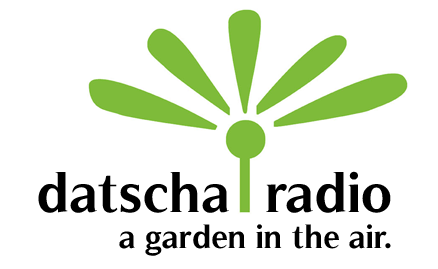
Forecast Sunday, 10th of March
On this six and last broadcast Datscha Radio Taipei will focus on the theme of waste. “Waste Culture” will discuss issues of Taiwanese waste management and recycling. It will explore our notions of garbage, trash, waste and debris. This will be done in the shape of talks and music, performance and field recording.
I am happy to welcome live at Datscha Radio, the founder and artistic director of the Bamboo Curtain Studio, Margaret Shiu, the Dutch sound and voice artist Mark Van Tongeren and the Yilan artist, farmer and performer Yang Hauyu. Together we will explore the “wastelands” of our contemporary civilization in conjunction with an interview with the field-recording artist Yannick Dauby who describes the havoc caused by plastic waste on the shores of the Taiwan archipelago of Pescadores. Moreover, there will be a visit by the duo of Soundwatch, the artist Lu Yi and Fujui Wang one of t h e pioneers of experimental music in Asia. We’ll play two selected pieces by Fujui Wang and a compositon especially prepared for this last episode of DRT by Lu Yi and Naturalismo (aka Gabriele de Seta): Sonic Garbage Collection. :)
I am also very happy and proud to be able to include the specifically for “Waste Culture” produced piece “Sea Waste 7.0” by the Yilan composer, DJ and musician Ken Yu into the broadcast as well as selected submissions of Datscha Radio’s open call “Trash”. Last but not least, I willperform of my new radiophonic piece “The Dog That Licked Up A Star” as an integral part of this final show – this will happen at some given moment after 6 pm.
As the planning for this show is still in the making, all content is subject to possible changes
Datscha Radio Taipei wants to make this afternoon special, as it is the last show in a series of six. Guests and visitors, performers, musicians, artists and friends, please come and enjoy and celebrate with us: Waste Culture!
Bring your radios, don’t bring any plastic items with you, bring instead some (recycled) Taiwanese (!) music: Make Radio not Waste J
Food and drink will be provided for by courtesy of THAV.
Studio Guests: Margaret Shiu, Mark van Tongeren, Hauyu Yang, Lu Yi and Fujui Wang (Soundwatch)
Interview (pre-production): Yannick Dauby: “When you bend down 200 times a day you start thinking differently about waste”
Radio Art Specials:
“Sonic Garbage Collection” by Lu Yi and Gabriele de Seta;
“The Dog That Licked Up A Star” by Gabi Schaffner;
“Sea Waste 7.0” by Ken Yu
Selected Compositions: Fernando Laub, Chelidon Frame, Tomoko Momiyama.
Program
15:00 – 15:20
Introduction of guests, listening to first open call piece or other
15:20 – 16:00
Discussion I waste management policy in Taiwan and elsewhere (Shiu, van Tongeren,
Hauyu Yang) + open call piece,
16:00 – 16: 20 Yannick Dauby. Interview (excerpt)
16:20 – 16:50: Introduction Sound Watch, presentation + live improv + talk
16:50 – 17:20: Discussion II recycling strategies in Taiwan and elsewhere (Shiu, van Tongeren, Hauyu Yang) + open call piece
17:20 – 17:35: Live Insert van Tongeren and/or introduction of Serge Onnen’s work about garbage
17:35 – 18:00 Discussion III (all guests): Earth works: Recipes on Sustainability + Live Insert by Sound Watch
18:00 – 18:20
The Dog That Licked Up A Star.
Performance and radiophonic composition by Gabi Schaffner
18: 25 – 19:00: Introduction Ken Yu
by Hauyu Yang +
Sea Waste 7.0 by Ken Yu
19:00 – Open end: Your turn! Bring your music…
Read More

































































